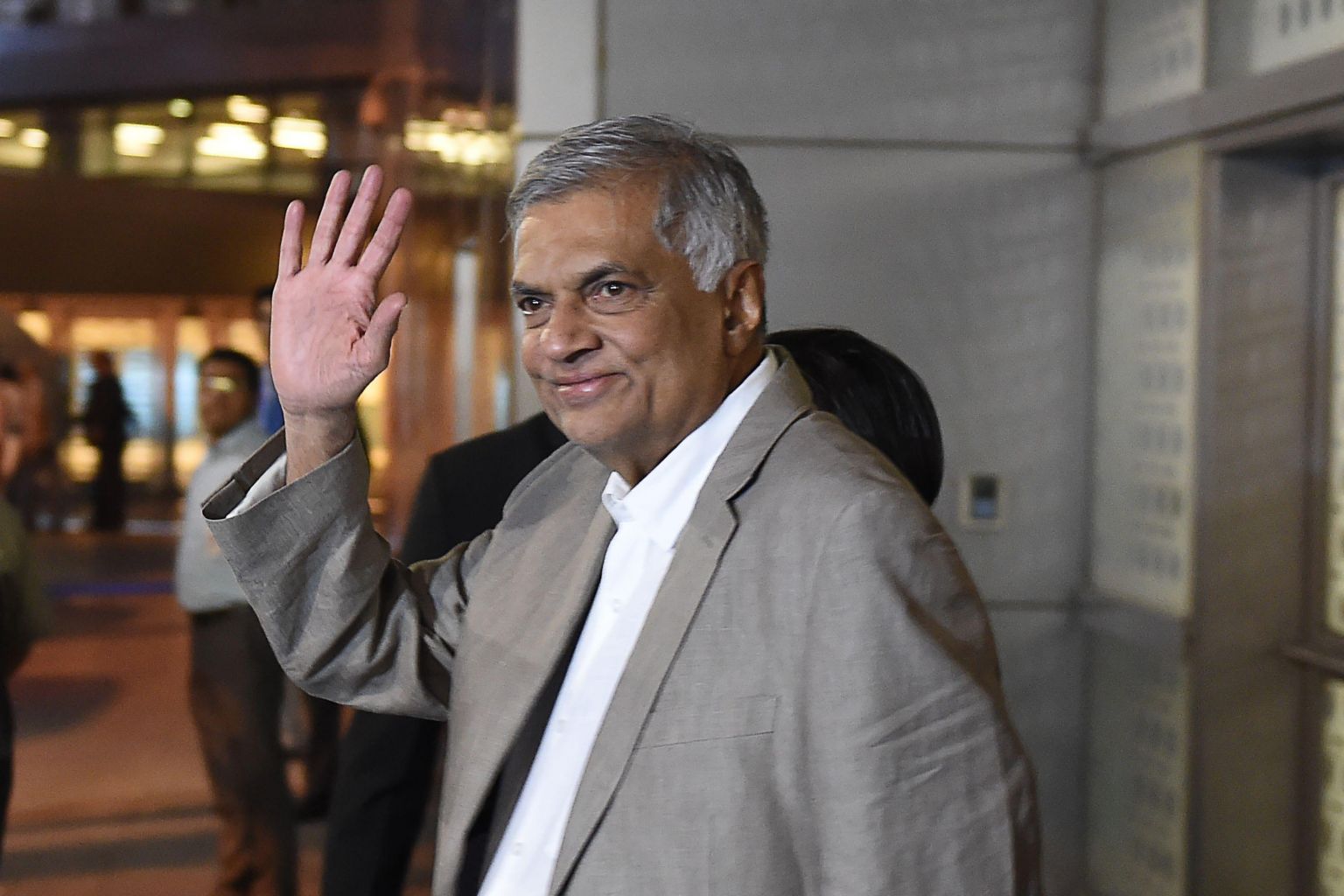Sri Lanka president suspends parliament amid crisis
Sign up now: Get insights on Asia's fast-moving developments

Mr Ranil Wickremesinghe has continued to occupy Temple Trees, the official residence of the prime minister, and insisted in a letter to Sri Lanka's President Maithripala Sirisena that he was still in office.
PHOTO: AFP
COLOMBO (AFP) - Sri Lanka President Maithripala Sirisena on Saturday (Oct 27) suspended parliament, deepening political turmoil after he sacked the country's prime minister and appointed former strongman president Mahinda Rajapakse as the "new Prime Minister".
Parliamentary officials said the President had suspended all meetings of the 225-member house until Nov 16.
Ranil Wickremesinghe, who was sacked by the president late Friday, had earlier called for an emergency session of parliament so he could prove his majority.
The parliament had been due to meet again on Nov 5 to unveil the 2019 annual budget.
The suspension could destabilise government finances at a time when the country faces an economic crisis.
In a statement, Parliamentary Speaker Karu Jayasuriya called for calm and restraint and for the crisis to be resolved quickly.
European diplomats in Colombo said they were closely following developments and urged both sides to act in line with the constitution, echoing comments made by the United States.
"The ambassador of the European Union as well as the ambassadors of France, Germany, Italy, the Netherlands, Romania and the UK High Commissioner ... urge all parties to fully act in accordance with Sri Lanka's constitution," they said.
They also urged the rivals to refrain from violence and respect media freedom.
Reports have said supporters of former strongman president Mahinda Rajapakse stormed several state media institutions and intimidated staff after he was sworn in as the new prime minister on Friday night.
Hours after sacking his former ally, President Maithripala Sirisena issued gazettes formalising the dramatic move, and the installation of Rajapakse as the new prime minister.
However, Wickremesinghe continued to occupy Temple Trees, the official residence of the prime minister, and insisted in a letter to Sirisena that he was still in office.
He has said that he can be removed only by Parliament where his party enjoys a majority, and also vowed to seek legal action against what he condemned as an unconstitutional move against him.
"I am addressing you as the prime minister of Sri Lanka," Wickremesinghe told reporters at a nationally televised press conference on Friday night.
"I remain as prime minister and I will function as the prime minister."
Since his rushed swearing in, Rajapakse is yet to announce the formation of a Cabinet - which under the Constitution is automatically dissolved when a prime minister is removed.
Parliamentary Speaker Karu Jayasuriya has said he will decide on Saturday whether to recognise Rajapakse or not, after seeking legal advice.
Parliament is not due to meet until Nov 5 when the 2019 national Budget is due to be presented. The Supreme Court, which is empowered to resolve constitutional disputes, is shut for the weekend and reopens on Monday.
The President's United People's Freedom Alliance party had earlier on Friday quit the coalition that had governed with Wickremesinghe's party.
Speaking to jubilant supporters outside his Colombo home late on Friday, Rajapakse also called on Wickremesinghe to step down.
Members of his party must "respect democracy, respect the country and respect the law", the former president said through a loudhailer from a balcony.
US URGES CALM
Overnight, Rajapakse loyalists stormed two state-owned television networks - which they regard as loyal to the outgoing government - and forced them off the air.
Video footage from private networks showed police overwhelmed by mobs at the Rupavahini national TV station but elsewhere in the capital streets remained calm.
The United States called on all sides in Sri Lanka to operate within the Constitution and refrain from violence, and urged the island to move forward on post-war reconciliation.
Rajapakse crushed the decades-long Tamil Tiger uprising while in power, but refused to acknowledge abuses committed during the bloody civil war.
"We call on all parties to act in accordance with Sri Lanka's Constitution, refrain from violence and follow due process," the State Department said.
"We expect the government of Sri Lanka to uphold its Geneva commitments to human rights, reform, accountability, justice and reconciliation."
After Sirisena's election in 2015, Sri Lanka shifted from confrontation to conciliation with the US and other Western powers and promised at the UN Human Rights Council in Geneva to investigate allegations of abuses.


